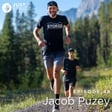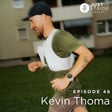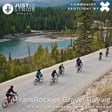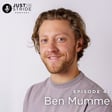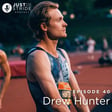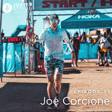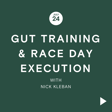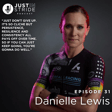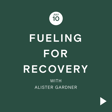
Ryan Hurley on going from elite swimmer to entrepreneurship, starting a business to optimize sleep and performance, importance of proper rest to recover, becoming an ultrarunning
On today’s episode of Just In Stride we rest and relax with elite swimmer, triathlete and entrepreneur, Ryan Hurley.
Ryan is an elite athlete who brings a wealth of experience and insights to the world of endurance sports. As an accomplished swimmer, ultrarunner, and triathlete, Ryan has pushed his limits across multiple disciplines, demonstrating incredible resilience, adaptability, and drive. Beyond his athletic pursuits, Ryan is the founder of Lagoon, a company dedicated to optimizing recovery and sleep for athletes and high performers.
Through his background in endurance sports and his work with Lagoon, Ryan brings a unique perspective on the importance of sleep, recovery, and mental fortitude in achieving peak performance. His journey embodies the spirit of this podcast, as he seamlessly balances athletic pursuits with innovative entrepreneurship, aiming to help others reach their full potential both in sport and life.
Here's the book I was talking about. Can't believe I forgot the name!
The Speed Freak Who Transformed Running - The New York Times
-------
Offer from Xact Nutrition: This episode is presented by our friends at Xact Nutrition and they are offering you 15% OFF your order when you use the code JUSTINSTRIDE. So head to xactnutrition.com and fuel your goals today! Now shipping in Canada and the U.S.
Thanks for tuning in to the Just In Stride Podcast. I truly appreciate you taking the time to listen and I hope you enjoyed that conversation as much as I did. Please take a minute after this to rate and review our show on Apple Podcasts. With your feedback we’ll be able to make the show even better and it’ll help us reach new listeners too. You can also find us on Instagram @justinstridepod and YouTube @justinstridepod for all the latest episodes and updates. Glad you came along for the ride with Just In Stride!
